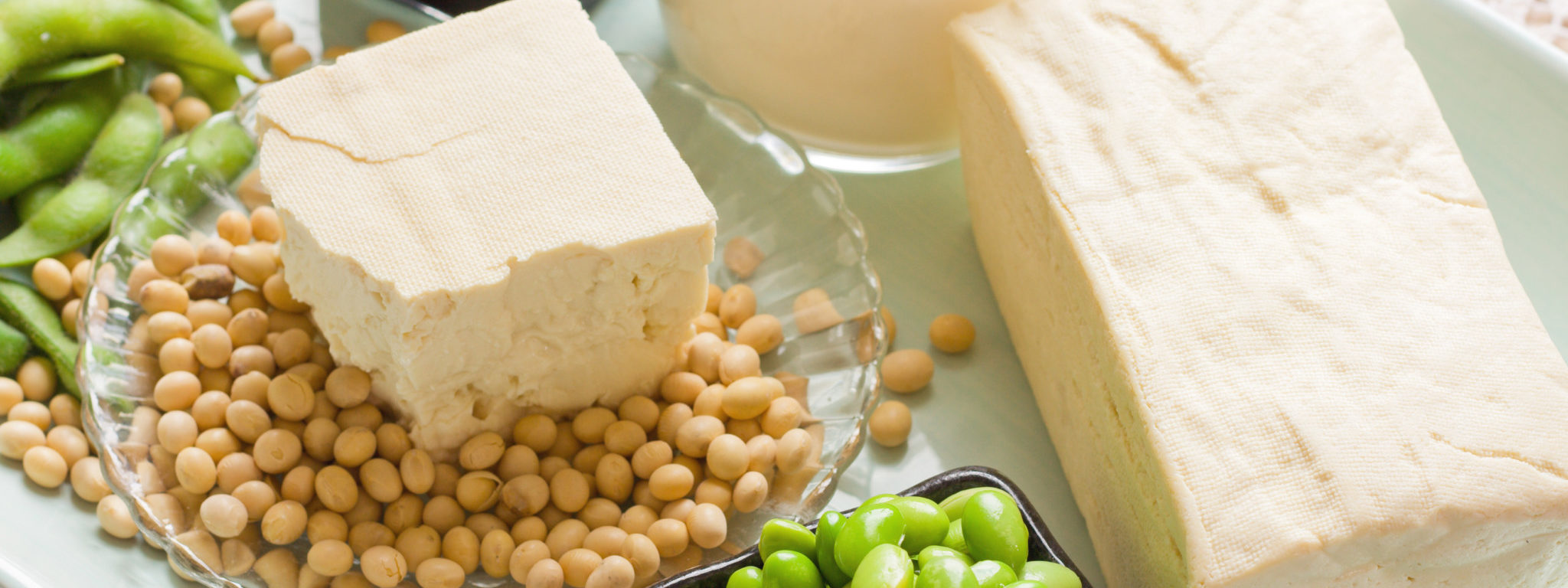Author: Mark Messina, PhD, MS
Foods made from soybeans have been a part of Asian cuisine for centuries. Rich in nutrients and phytochemicals, the health effects of these foods have been rigorously studied over the past 30 years.
Like other legumes, soybeans are a good source of fiber, potassium, and the B vitamin folate. Compared to other beans, however, soybeans are unique because they are higher in fat and protein and lower in carbohydrate. Soybeans contain both essential fatty acids. Soy protein matches the quality of animal protein and is superior in quality to other plant proteins.
Soybeans and the traditional Asian foods made from them, such as tofu, soymilk, and miso, are also unique among commonly consumed foods because of their isoflavone content. Although isoflavones are classified as phytoestrogens (plant estrogens), they differ from the hormone estrogen in important ways. Isoflavones are being studied for potential benefits related to heart disease, cognition, and certain cancers. In traditional Asian soyfoods, each gram of protein is associated with about 3.5 milligrams of isoflavones. Many protein powders contain less than this amount. Average isoflavone intake in Japan is about 40 milligrams per day.
Heart Disease: The protein, fat, and isoflavone contents of soyfoods may all reduce risk for heart disease. Soy protein directly lowers blood cholesterol levels. The polyunsaturated fat in soyfoods also reduces cholesterol levels when it replaces foods high in saturated fat. Isoflavones may directly improve the health of the arteries.
Breast Cancer: The historically lower rates of breast cancer in some Asian countries fueled interest in potential benefits of soyfoods. Studies show that within Asian populations, breast cancer is less common among women who regularly consume soy compared to those who consume little soy. Research suggests that it is early life consumption of soy that protects against breast cancer later in life. As little as one serving per day in childhood and/or adolescence may be enough to reduce lifetime risk for breast cancer risk by 25 to 50%.
Cognitive Health: Based on three analyses of clinical studies involving older men and women, isoflavones were found to favorably affect both cognitive function and visual memory.
Hot Flashes: Supplements of isoflavones reduced the frequency of hot flashes in postmenopausal women by 50% according to a statistical analysis of clinical studies. They were equally effective at reducing hot flash severity. Based on the research, the amount of isoflavones found in two servings of traditional soyfoods is enough to impact hot flashes.
Muscle Mass and Strength: Resistance exercise like weightlifting, along with adequate protein intake is effective at increasing and maintaining muscle and strength, especially as people age. Soy protein has been found to be as effective as animal proteins, including whey protein, for promoting both muscle mass and strength in those engaged in resistance exercise training.
How much soy should you eat?
A serving of tofu, miso, soymilk, or tempeh provides 6 to 10 grams of protein and about 25 mg isoflavones Two servings of soyfoods per day, which provide about 50 milligrams of isoflavones, is enough to produce many of the benefits associated with soy intake. For cholesterol reduction, recommendations are to consume 25 grams soy protein per day. Although higher amounts of soy have not been shown to be harmful, capping intake at 4 servings per day is one way to make sure your diet has plenty of variety, a key factor in healthy eating.
Please find a more detailed article here including references:
Nutritional and Health Attributes of Soyfoods Overview (PDF)
About the Author:
Dr. Mark Messina is an adjunct associate professor at Loma Linda University and the Executive Director of the Soy Nutrition Institute. He has been studying the health effects of soy for more than 30 years and has published more than 60 scientific papers and given more than 500 presentations on soyfoods to health professionals.

